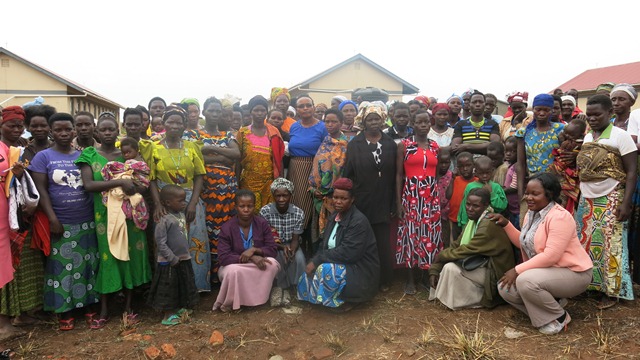Lady Justice Cornelia Sabiiti who is hearing the case involving the refinery-affected people could visit their settlement in Kyakaboga in Hoima, following submission of evidence by all the refinery-affected people.
The judge’s decision came after John Bosco Wandera, who is one of the plaintiffs in the case in which the refinery-affected people accuse government of under-compensating and delaying to compensate them, submitted his evidence.
During the case hearing that took place yesterday March 4, 2019 at the Kampala High Court, Wandera told the judge that he had two pieces of land in the refinery area in Kabaale-Buseruka, Hoima prior to government’s land acquisition. Government acquired over 29 sq. km of land for Uganda’s proposed refinery beginning in 2012.
Wandera opted for physical relocation for one of his pieces of land and asked for cash compensation for the other. Subsequently, Ministry of Energy bought 533 acres of land in Kyakaboga, Hoima for the 73 refinery-affected households. The ministry also constructed houses for Wandera and 45 other refinery-affected people though 73 refinery-affected families were relocated by government in 2017.
Wandera told the judge that he was displeased with government’s decision to construct for the refinery-affected people houses in a camp-like settlement. “I was a member of the resettlement committee and in 2014, Ministry of Energy took us to Kyakaboga to see the land it said it wanted to buy. The land was rejected by both the committee and the refinery-affected people because families wanted to be bought for land on a case-by-case basis as committed to by Ministry of Energy in the Resettlement Action Plan (RAP) report of 2012.
The committee and the refinery-affected people told Ministry of Energy that the camp-settlement in Kyakaboga would not allow people to engage in farming. It would also breed poor sanitation and result in tension with neighbours,” Wandera said. 2 He informed the judge that Ministry of Energy said that it had two other pieces of land that it would show the refinery-affected people. However, the ministry did not show them the land and bought the land at Kyakaboga instead.
Abandonment of Kyakaboga House
“Kyakaboga smells because 46 pit latrines, houses and kitchens are built in the squeezed settlement. The latrines are very close to the kitchen and the houses making the settlement unhygienic. I abandoned my house because of the situation in Kyakaboga,” Wandera told the judge. He also told court that his children had fallen sick because Kyakaboga is unhygienic. Wandera asked the judge to visit Kyakaboga and assess its situation.
The judge said she could visit after hearing all the evidence. During the case hearing, Wandera also informed the judge that because of the cut-off date of June 2, 2012, he was unable to re-build his house in Kabaale-Buseruka when it fell in 2014. This is because the cut-off date stopped him and other refinery-affected families from undertaking developments on the affected land.
Wandera was compensated on July 20, 2016. He only accepted the low compensation, which he had rejected, because he was suffering with his children failing to go to school. He made a choice between life and death. His house had collapsed and his children had dropped out of school. His crops were also being eaten by cows from neighboring villages and wild animals.
The judge fixed the next hearings in June 2019. She hopes to conclude the case then. The judge made the decision to expedite the hearing because the refinery-affected people travel from Hoima, Kiryndongo and other districts to Kampala for every hearing of the case, which is expensive, time consuming and cumbersome especially on women and the poor.





